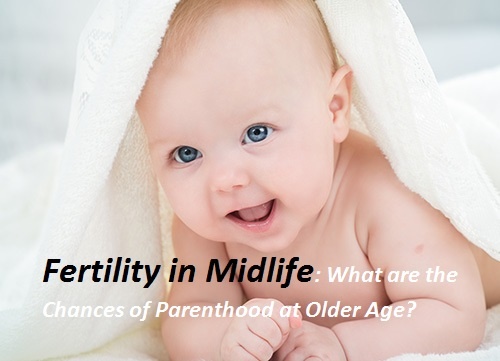
Fertility in Midlife: What are the Chances of Parenthood at Older Age?
Midlife is defined as a central period of a person’s life that varies from 45 to 60 years. Like any other human efficiency, fertility also declines with the age. But these days many celebrities are seen conceiving at an older age around 35 or above. People look up to these celebrities and generally do not believe in the biological clock for fertility. So, there are various misconceptions around age and fertility. Dr. Shivani Sachdev Gour – the best female fertility doctor in Delhi explains Midlife Parenthood in detail.
Possible Reasons for Midlife Parenthood
Midlife parenthood is not a celebrity thing anymore, this trend is increasing day by day. People are delaying their pregnancy for the following possible reasons.
- Greater financial stability
- More emotionally preparedness
- Flexibility with the work schedule due to ongoing stable carriers
Disadvantages of Midlife Parenthood
While there are lots of emotional, personal, and professional reasons for older-age parenthood, there are some disadvantages as well.
- Midlife parenthood is hardly achieved through natural means. There is a need for some artificial methods such as IVF or ART to achieve this goal.
- Less energy at this age to handle a child.
- Less lifetime with children.
- The stigma of being older parents.
- Smaller family size as no time left for the second child id first is planned at mid-age.
Correct Age of becoming Parents
Fertility in males diminishes slowly after the age of 45 and stops almost at the age of 70, while in women fertility gradually decreases at the age of 35 and stops almost at 45-50 with menopause. Even after the age of 35, the egg quality becomes poor with each passing year. Although with the help of IVF or other artificial methods pregnancy can be achieved.
How do Experts evaluate the chances of Old-age pregnancy?
Delphi Consensus of IVF treatment suggests, if a woman more than the age of 35 years cannot conceive even trying for almost 6 months or 1 year, she should not be encouraged further through natural means for pregnancy. To shorten the time of conceiving, an Antagonist protocol rather than the Agonist protocol. Agonist protocol prolongs the time of pregnancy. The following methods are used based on age.
- Prevention: If the patient is planning pregnancy at a later age, he/she can prevent the consequences of decreasing fertility in advance. For that, fertility can be preserved at an early age, maybe at the 20s, when the quality of eggs and sperms are at its best. A woman can opt for Oocyte cryopreservation before the fertility actually declines.
- Compensation: If a female patient is between 35 to 40 years of age, where fertility drops at a moderate rate, the all force to maximize the chances of conceiving. If the patient is a poor responder, the DuoStim protocol is used that suggests two-time stimulation is on a period cycle to produce more oocytes (immature eggs). More the oocytes, the more the chances of getting pregnant. Also, medicines are given for follicle formation to convert oocytes to mature eggs.
- Solve: If the patient is more than 45 years of age, where the chances of oocyte generation are minimal, the solution suggested is a donation. A donor donates the healthy oocyte for the process. SCI IVF HOSPITAL – Best Infertility Clinic in Delhi NCR can help you in infertility treatment.
